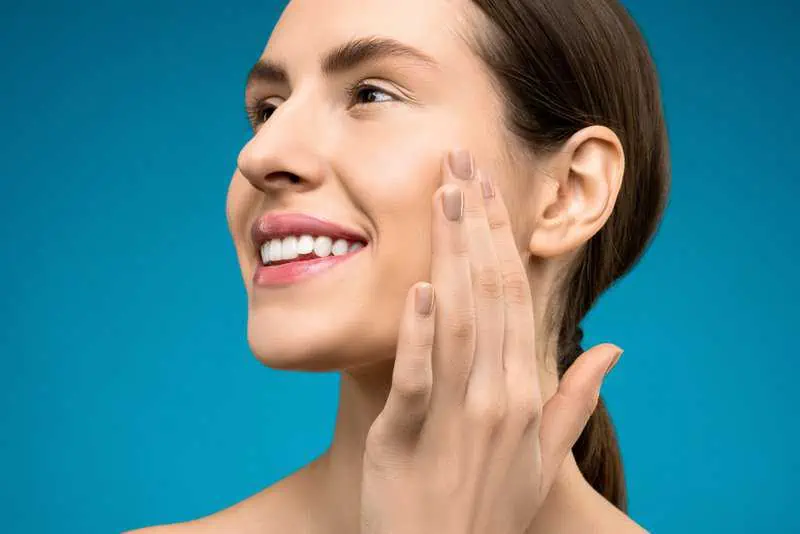
At My Rivertown Dentist, we work hard every day to spread the word about Myofunctional Therapy in dentistry. We are your best choice for a Madison dental office who caters to everyone while also offering this uniquely natural practice where we work specifically with the muscles in your lips, tongue, cheeks, and face. Under the expert guidance of Dr. Ashley Lee, we’re able to help you evaluate, treat, and even prevent a variety of oral health issues.
An Easy Explanation of Myofunctional Therapy
The term can be a little strange, but Myofunctional Therapy is easy enough for a child to understand. Here’s how we break it down so that anyone can grasp the concept:
So, imagine your mouth is like a team, and the players are your lips, tongue, and teeth. Our Madison Myofunctional Therapy is like a coach for this team, helping them work together better! Sometimes, the players in our mouth might not work as a team. Myofunctional therapy helps make them stronger and coordinated. It teaches your tongue and muscles how to work properly. This therapy can help with things like how you talk, chew, and even swallow.
You might play fun games or do exercises during myofunctional therapy to make your mouth muscles stronger. These exercises can help make sure your tongue is in the right place and your lips are doing their job too. Just like practicing soccer or dancing makes you better, Myofunctional Therapy helps make your mouth muscles stronger and better at their jobs. It’s like giving them special training to work together and keep your mouth healthy and happy! At My Rivertown Dentist, we can rely on it to primarily address issues related to the orofacial muscles, tongue posture, swallowing patterns, and overall oral function.
Strengthening the Link Between Breathing and Oral Health
There’s a significant link between breathing patterns and your oral health. Improper breathing, such as mouth breathing or dysfunctional breathing patterns, can lead to various issues like:
Your Madison dentist is happy to explain how mouth breathing can cause dry mouth, which increases the risk of cavities and gum disease due to reduced saliva flow that helps protect your teeth.
Exploring the Many Benefits of Myofunctional Therapy
Take a deep breath and know that Myofunctional Therapy can help to improve your breathing patterns. Patients are able to breathe through their nose again, promoting better oxygenation and reducing the risk of oral health problems. Some of the other common benefits of Myofunctional Therapy might include:
○ Correcting tongue posture: It assists in establishing proper tongue posture, which plays a crucial role in oral health, speech, and swallowing.
○ Enhancing swallowing patterns: Myofunctional therapy aims to correct dysfunctional swallowing patterns, preventing issues like swallowing difficulties (dysphagia) and related complications.
○ Assisting in orthodontic treatment: It can complement orthodontic treatment by aiding in maintaining proper tooth alignment and preventing relapse after orthodontic work.
These are all things that can lead to unnecessary health struggles in life that might hold you back from doing what you truly love. Let Dr. Lee help you at our dental office in Madison.
Conditions Treated with Myofunctional Therapy
Myofunctional Therapy uses Neuromuscular Dentistry and re-patterning in order to create new habits in breathing, swallowing, and how your muscles function at rest. It’s often relied upon to address various conditions including but not limited to:
○ Mouth breathing
○ Tongue thrust (reverse swallow)
○ Temporomandibular joint disorder (TMJ/TMD)
○ Sleep-related breathing disorders like sleep apnea
○ Speech disorders related to oral function
How to Begin the Process of Myofunctional Therapy in Madison
The first step you’ll want to take is to reach out to the team at My Rivertown Dentist so that we can schedule an important assessment for you or someone in your family. This is where Dr. Lee can do a comprehensive evaluation of your oral function, swallowing patterns, and breathing. Then, you might be asked to complete some customized exercises. She can easily tailor them and other techniques to target specific muscle groups, aiming to correct the dysfunctional patterns. You’ll generally have to attend regular sessions to learn and practice these exercises under the guidance of Dr. Lee and team. We’ll be sure to monitor your progress and adjust your Myofunctional Therapy plan as needed.
Is Myofunctional Therapy Right for You?
How can you be sure if this type of treatment is right for you or maybe someone in your family? It’s certainly dependent on if you have trouble with the issues we’ve talked about here like
○ Mouth breathing
○ Speech problems related to oral function
○ Difficulty swallowing
○ Temporomandibular joint (TMJ) pain
○ Orthodontic concerns
○ Sleep-related breathing problems
Maybe you’ve struggled with one or more of these for years. Perhaps you’ve had issues, but didn’t know why or where they were coming from. It’s important to talk to someone trained in Myofunctional Therapy like Dr. Lee who can determine if this type of treatment is the right fit for you.
Call our dental office in Madison today for a consultation. You’ll have the opportunity to talk about your concerns and meet with Dr. Lee. It could be the first step in taking back control of your oral and overall health.